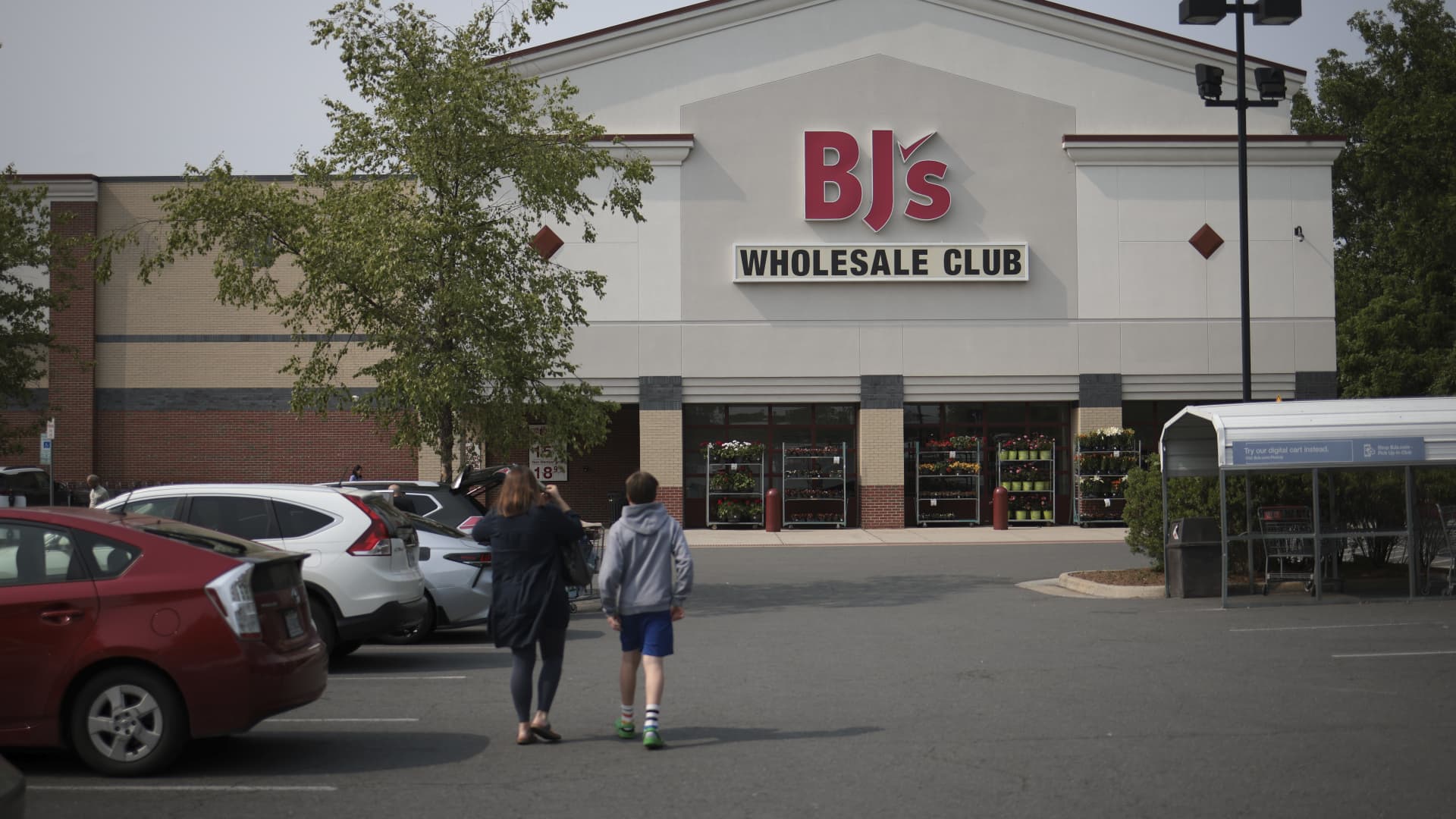BJ’s Wholesale Club said Wednesday that it will open four clubs in the Southeast and one in the Midwest this year, as it tries to expand and attract members in other parts of the country in a competitive membership warehouse market.
The new stores will open this fiscal year in Maryville, Tennessee; Myrtle Beach, South Carolina; Palm Coast and West Palm Beach, Florida; and Carmel, Indiana. The company plans to open a dozen new clubs this fiscal year, including an already announced club in Louisville, Kentucky.
The smaller rival of Costco and Walmart-owned Sam’s Club is just the latest warehouse club to share its goals for expansion. Sam’s Club said in early 2023 that it would open more than 30 stores in the U.S. over a five-year period. Earlier this month, Costco said on an earnings call that it expects to open 30 new clubs globally in its fiscal year, including two relocations. Twenty-two are planned for the U.S.
Their moves come as value-focused retailers, such as off-price chains, drive store growth in the U.S. The retailers that have announced the most new locations so far this calendar year are Dollar General, Burlington and Aldi, according to Coresight Research, a retail advisory firm that tracks openings and closures.
Similarly, club stores resonate with budget shoppers because they emphasize getting more for less.
BJ’s
Clubs in the U.S.: 244
Membership fee: $55 per year or $110 for higher tier
Costco
Clubs in the U.S.: 603, including Puerto Rico
Membership fee: $60 per year or $120 for higher tier
Sam’s Club
Clubs in the U.S.: 599, including Puerto Rico
Membership fee: $50 or $110 for higher tier
Source: Company websites and most recent earnings releases
BJ’s has a smaller reach than its club rivals. Most of the Marlborough, Massachusetts-based retailer’s clubs have been concentrated on the East Coast. Its expansion will bring it to 21 states compared with Costco, which had clubs in 46 states, Washington D.C., and Puerto Rico as of Sept. 3, the end of its fiscal year. Sam’s Club has locations in 44 states and in Puerto Rico.
Yet BJ’s has been in growth mode since 2016, when it stepped up efforts to break into new markets, said Bill Werner, the retailer’s executive vice president of strategy and development. It has opened 27 new clubs and entered four new states over the past five years: Tennessee, Alabama, Indiana and Michigan. It opened seven new clubs last fiscal year.
It plans to open 10 to 12 clubs each year going forward, Werner said.
Yet BJ’s will have to convince customers to buy a membership, which could be a challenge if it’s the second or third club in a customer’s backyard.
Greg Melich, a retail analyst for Evercore ISI, said BJ’s can stand out with its emphasis on grocery. It has nearly double the number of items of club competitors, including many more fridge staples like fruits, vegetables and deli meats. Along with carrying bulk sizes of laundry detergent and paper towels, it also sells smaller items like a gallon of milk or single loaf of bread that lend themselves to a weekly grocery run.
“You may be able to buy a piece of cheese that’s not two pounds,” Melich said.
He said BJ’s is better off focusing on stealing sales from regional and national supermarkets like Publix and Kroger.
“It would be a mistake for BJ’s to try to be Costco,” he said. “That’s not the point. The point is there are a lot of people in a lot of markets who would like to buy things cheaper than they would be at their local grocery store.”
BJ’s Werner said the company’s typical customer has an average household income of between $75,000 and $100,000. He added that in the new markets BJ’s has entered, it’s been able to attract members who already belong to another club.
Earlier this month, BJ’s said it expects modest growth during the full year. The retailer said it anticipates comparable club sales to increase 1% to 2% year over year, excluding gas sales. It said adjusted earnings per share will range from $3.75 to $4.00, with the lower end of that falling below the $3.96 that it reported for the most recent fiscal year.
As of Tuesday’s close, BJ’s shares had climbed more than 12% this year. That has outperformed the S&P 500’s gains of more than 9%.
